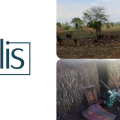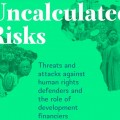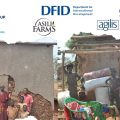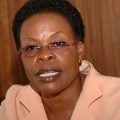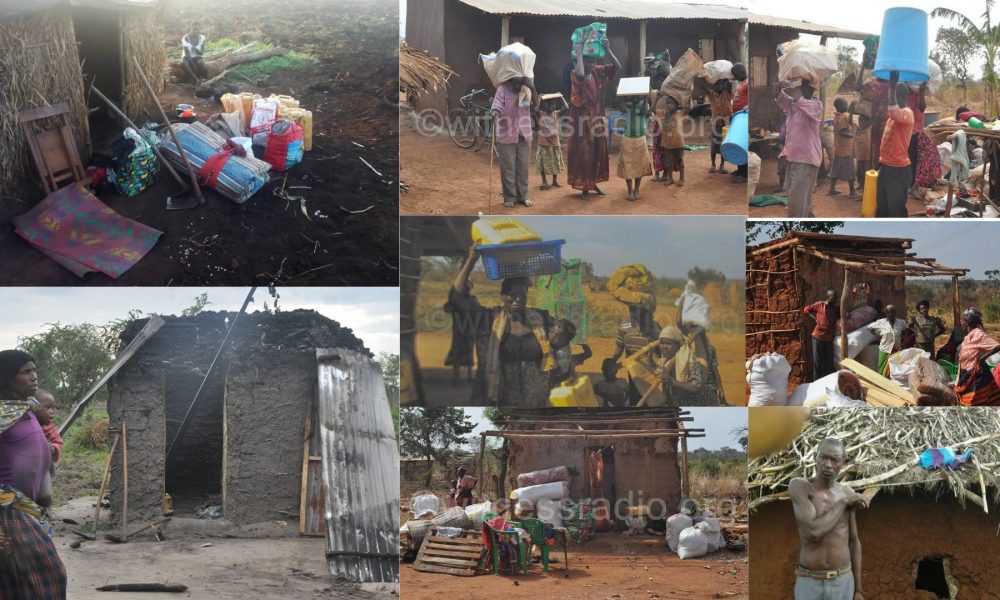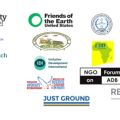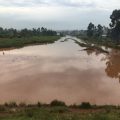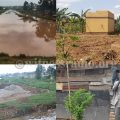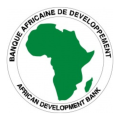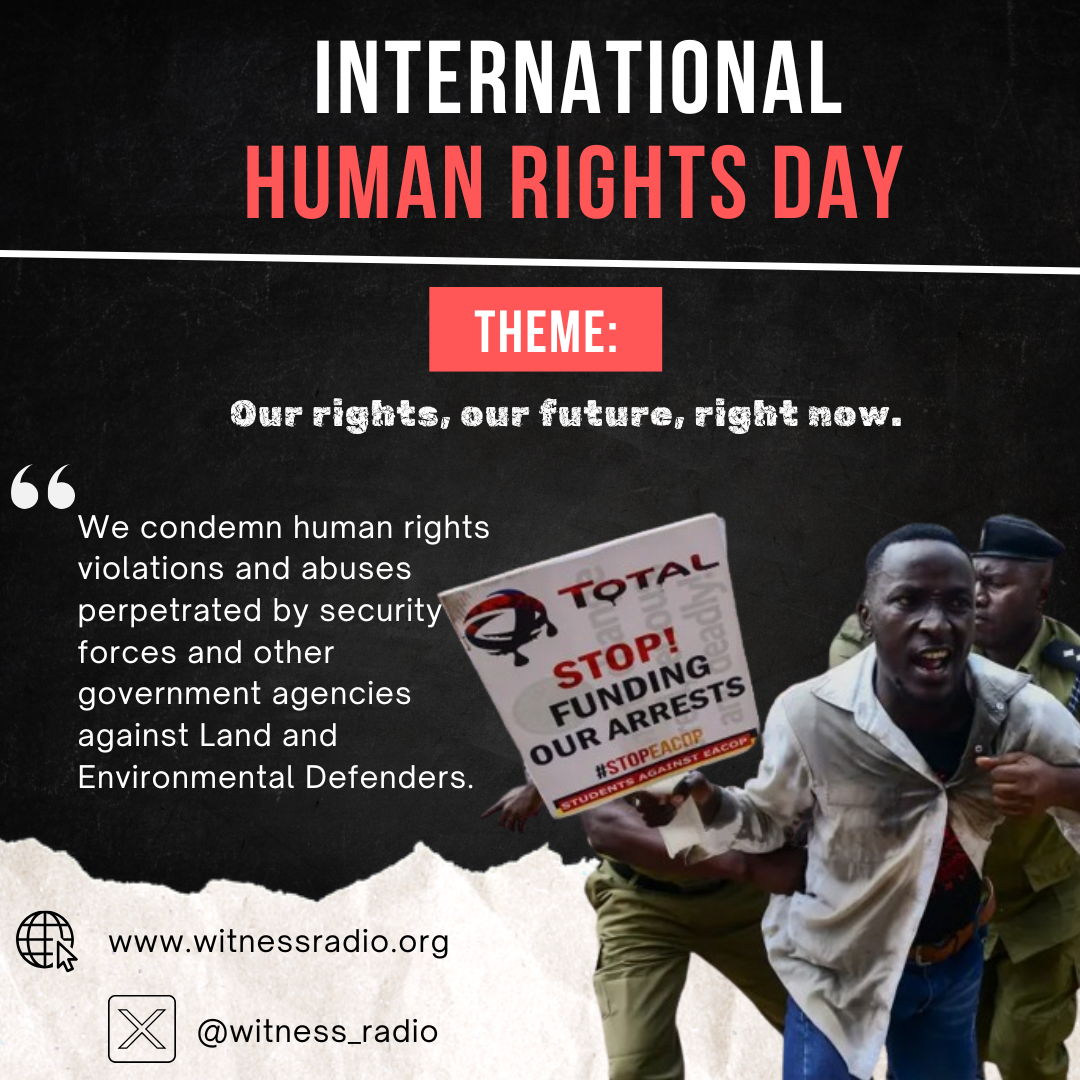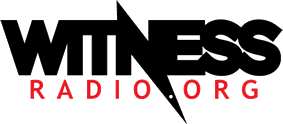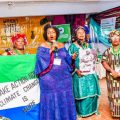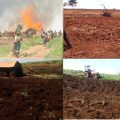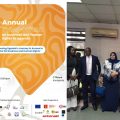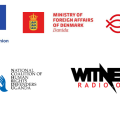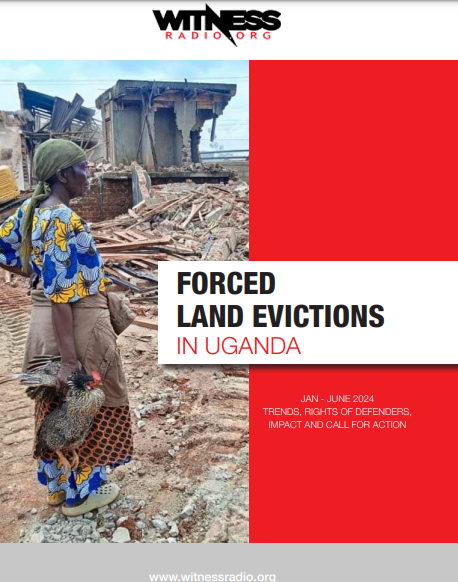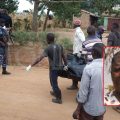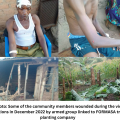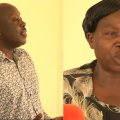Open Letter
26th/06/2024.
Mr. Benjamin Prinz,
Managing Director,
Agilis Partners Limited.
Dear Benjamin,
Civil Society Organizations and individuals demand justice for Ugandan community members whose lands were grabbed by agribusiness company Agilis Partners Limited.
Kiryandongo – Uganda; We, the undersigned organizations condemn human rights abuses by the agribusiness company Agilis Partners Limited (owned by two American citizens) and its financial backers against the people of Kiryandongo District where Agilis is establishing a massive industrial farm.
Thousands of people from local and Indigenous communities have been forcefully evicted from their land to make way for Agilis Partners Limited’s large-scale farming operations, in violation of international human rights law. The alarming situation involves severe human rights abuses including forced evictions and lack of prompt, fair, and adequate compensation; violations of Indigenous peoples’ right to free, prior, and informed consent; abduction, arrest, torture, and judicial harassment of human rights defenders, and alleged sexual violence against women and girls, as well as other negative social and environmental impacts.
About Agilis Partners Limited On 9 January, 2018, Agilis Partners Limited was incorporated via registration number R200000884113 as an agribusiness company in Uganda. It is owned and directed by American businessmen and brothers, Philipp Prinz and Benjamin Prinz. Through its subsidiary, Agilis Ranch 20 & 21 Investment Company (Uganda) Limited (registration # 80020000586929), it is pursuing large-scale grain agriculture in Kiryandongo District in Uganda.
In 2019, Agilis Partners received an Award for Corporate Excellence from the US Secretary of State under the category of “Sustainable Operations”. Agilis Partners has also received financial investment and support from various government [1]agencies and private foundations, including the Dutch Oak Tree Foundation, USAID, and the Common Fund for Commodities (CFC).
Since 2022, Agilis Partners Limited has been receiving funding from the World Bank through the International Finance Corporation to create a sustainable business model for 6,000 smallholder farmers and improve smallholders’ maize production, provide them with a digital marketplace, and to improve farming processes of the company.
Purpose of the Fund: The loan from the IFC is for advisory service, and the project description states that the funding aims to improve smallholders’ maize production, provide them with digital marketplace, improve farming processes of the company and, most importantly, to advise Agilis regarding compliance with the IFC’s Performance Standard 5 on Land Acquisition and Involuntary Resettlement.
This support from foreign governments, foundations and multilateral agencies has occurred despite numerous documented incidences of violations of the rights of affected community members:
1. Evictions carried out for Agilis’ agricultural operations have not only displaced hundreds of families but have also led to the arrest and torture of individuals advocating for their land rights. Community leaders and activists who have stood up against these injustices have faced brutal treatment, aimed at silencing their voices and discouraging resistance. This blatant disregard for human rights and the rule of law is unacceptable and demands immediate
attention and action.
2. Residents of Kiryandongo have reported several human rights violations in Kiryandongo district in Kimogola and Kisalanda villages where Agilis has been operating since they evicted people from their land in 2017. People have been murdered, maliciously arrested, and tortured especially those who refused to vacate their land. People’s crops have been destroyed thus increasing the levels of poverty and hunger in the villages since most of the residents living there are farmers. Project-affected persons are not [2] allowed to grow crops on their land thus leading to people sleeping on empty stomachs. People’s cattle are abducted every day only to frustrate them into giving up so that they can leave the land for the company.
3. There is also an increase of sexual abuse amongst women and school-going girls by men working for Agilis who are brought in from distant communities. There are reports of increasing incidence of sexually transmitted diseases and early pregnancies resulting into school dropouts. [3]
Our Call for Action.
Witness Radio and its partners representing PAPs have written to Agilis Partners seeking a dialogue between the company and people who have been harmed on several occasions however, the company has not responded to any of our communications. We call upon civil society organizations globally to urgently join us and demand that Agilis Partners Limited and its financial
backers take immediate action to stop the human rights abuses and harassment committed against community members, engage in dialogue with the communities, and restore the lands to the people that have been displaced.
We also call on the World Bank and the governments of the United States of America and the Netherlands, as key financial backers of Agilis, to support an independent investigation into the human rights abuses committed by the
company. They must act swiftly to end these abuses, support the affected communities in the struggle for land rights, and hold Agilis Partners Limited accountable for all human rights abuses.
We call on the Ugandan government to protect the rights of its citizens, including their right to land, right to defend rights, freedom of peaceful assembly, freedom of expression, and freedom from torture and inhumane and
degrading treatment.
The safety and rights of land and environmental rights defenders must be ensured by the government. The PAPs have been forcibly evicted, arrested, and subjected to violence. This is failure of the duty of the Ugandan government to protect their rights and the responsibility of Agilis Partners to respect rights.
We call on the United Nations bodies and regional human rights bodies to take action to ensure Agilis Partners fulfills its responsibility to respect human rights, aligned with the UN Guiding Principles on Business and Human Rights.
Witness Radio Uganda and its partners stand in solidarity with the people of Kiryandongo and will continue to advocate for their rights and justice.
i
Signatories below;
- AbibiNsroma Foundation | Ghana
- Accountability Counsel | USA
- Agency for Turkana Development Initiatives (ATUDIS) | Kenya
- Asegis Community Network | Kenya
- Asia Indigenous Peoples Network on Extractive Industries and Energy (AIPNEE) | Philippines
- Asociación para la defensa de los derechos naturales | Ireland
- Benet Mosop Indigenous Community Association
- Buliisa Initiative for Rural Development Organisation (BIRUDO) | Uganda
- Chairperson of Oil Workers Rights Protection Organization | Azerbaijan
- Environmental Defender Law Center | United Kingdom
- Friends of Lake Turkana | Kenya
- Global Rights | Global
- Green Development Advocates | Cameroon
- Indigenous Peoples Rights International | Philippines
- International Accountability Project | Global
- Kebetkache Women Development & Resource Centre | Nigeria
- League of Volunteers for Human Rights and Environment (LISVDHE) | Democratic Republic of Congo
- Menafem | Egypt
- Oyu Tolgoi Watch | Mongolia
- PIDP | DRC
- Policy Action Initiative | Kenya
- Project on Organizing, Development, Education, and Research (PODER) | Mexico
- Protection International | Kenya
- Sengwer Indigenous Peoples Programme | Kenya
- The Awakening | Pakistan
- Women for Green Economy Movement Uganda | Uganda
- Green Advocates International | Liberia
- Jamaa Resource Initiatives Kenya | Kenya
- LSD | Senegal
- Narasha Community Development Group | Kenya
- Network Movement for Justice and Development (NMJD) | Sierra Leone
- Observatoire de la Société Civile Congolaise pour les Minerais de Paix ( OSCMP ) | DRCongo
- Propurus | Peru
- Turkana Extractive Consortium | Kenya
- Asociación ProPurus
- Witness Radio / Uganda
[1] https://www.common-
fund.org/sites/default/files/Publications/CFC_Annual_Report_2019.pdf
https://spcommreports.ohchr.org/TMResultsBase/DownLoadFile?gId=36653
https://www.dobequity.nl/dob-equity-news/dob-equity-sells-shares-in-joseph-initiative
https://common-fund.org/kupanua-project-asili-farms-ltd-uganda
https://pdf.usaid.gov/pdf_docs/PA00X6RC.pdf
[2] https://www.foodbusinessafrica.com/rwandan-food-distribution-company-get-it-clinches-
investment-from-us-investor-vestedworld/
https://disclosures.ifc.org/project-detail/AS/605676/uganda-grain-development-project-agilis
https://pdf.usaid.gov/pdf_docs/PA00ZTK7.pdf
https://ug.usembassy.gov/agilis-partners-wins-2019-secretary-of-states-award-for-corporate-
excellence-november-1-2019/
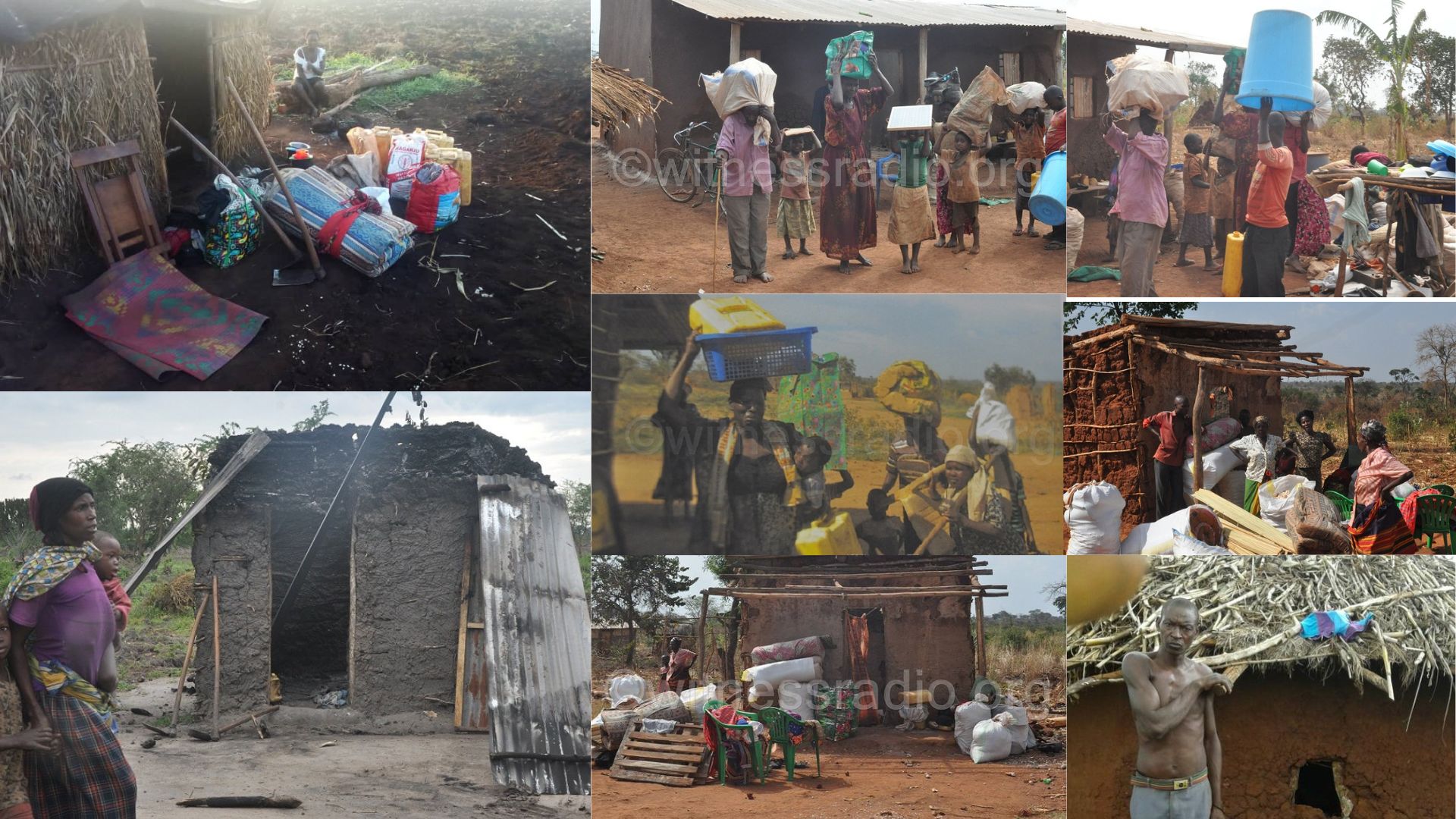

 NGO WORK2 weeks ago
NGO WORK2 weeks ago
 MEDIA FOR CHANGE NETWORK2 weeks ago
MEDIA FOR CHANGE NETWORK2 weeks ago
 MEDIA FOR CHANGE NETWORK2 weeks ago
MEDIA FOR CHANGE NETWORK2 weeks ago
 MEDIA FOR CHANGE NETWORK2 weeks ago
MEDIA FOR CHANGE NETWORK2 weeks ago
 MEDIA FOR CHANGE NETWORK2 weeks ago
MEDIA FOR CHANGE NETWORK2 weeks ago
 MEDIA FOR CHANGE NETWORK7 days ago
MEDIA FOR CHANGE NETWORK7 days ago
 MEDIA FOR CHANGE NETWORK7 days ago
MEDIA FOR CHANGE NETWORK7 days ago
 MEDIA FOR CHANGE NETWORK2 days ago
MEDIA FOR CHANGE NETWORK2 days ago

